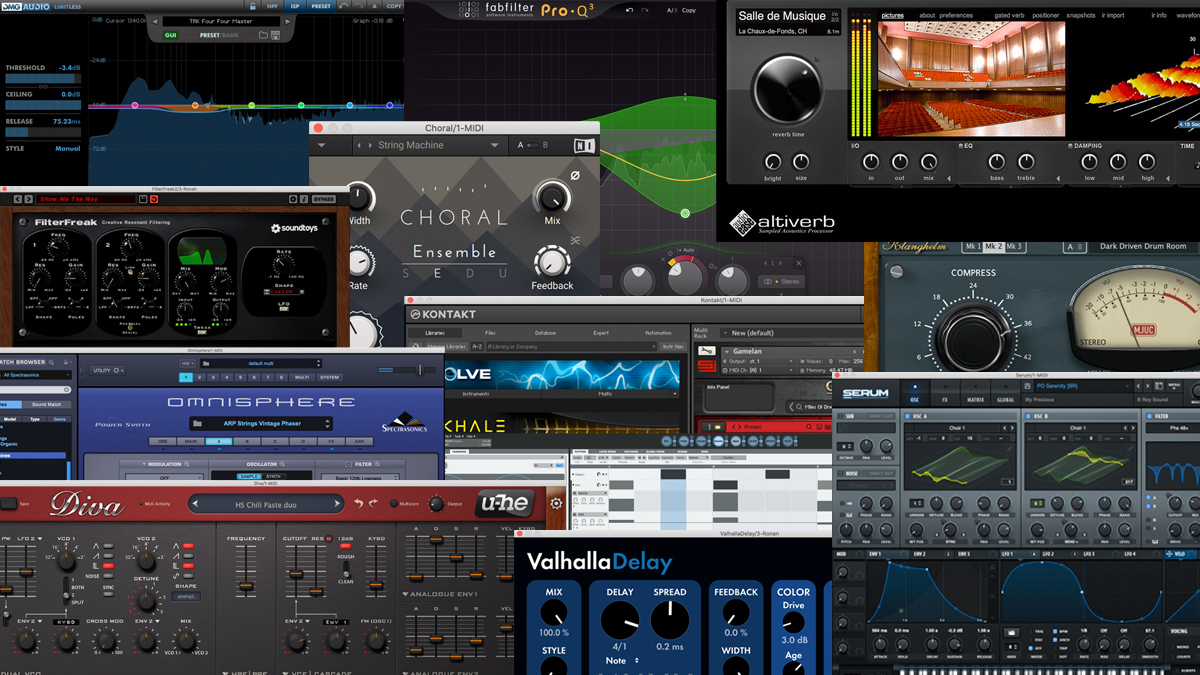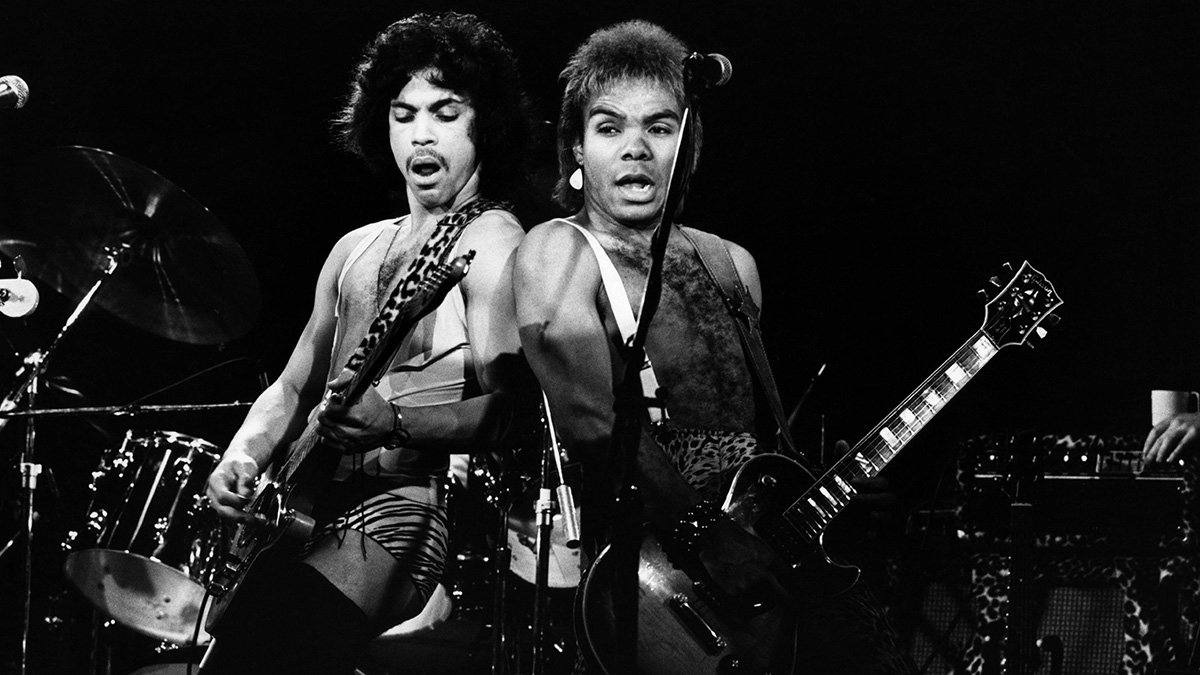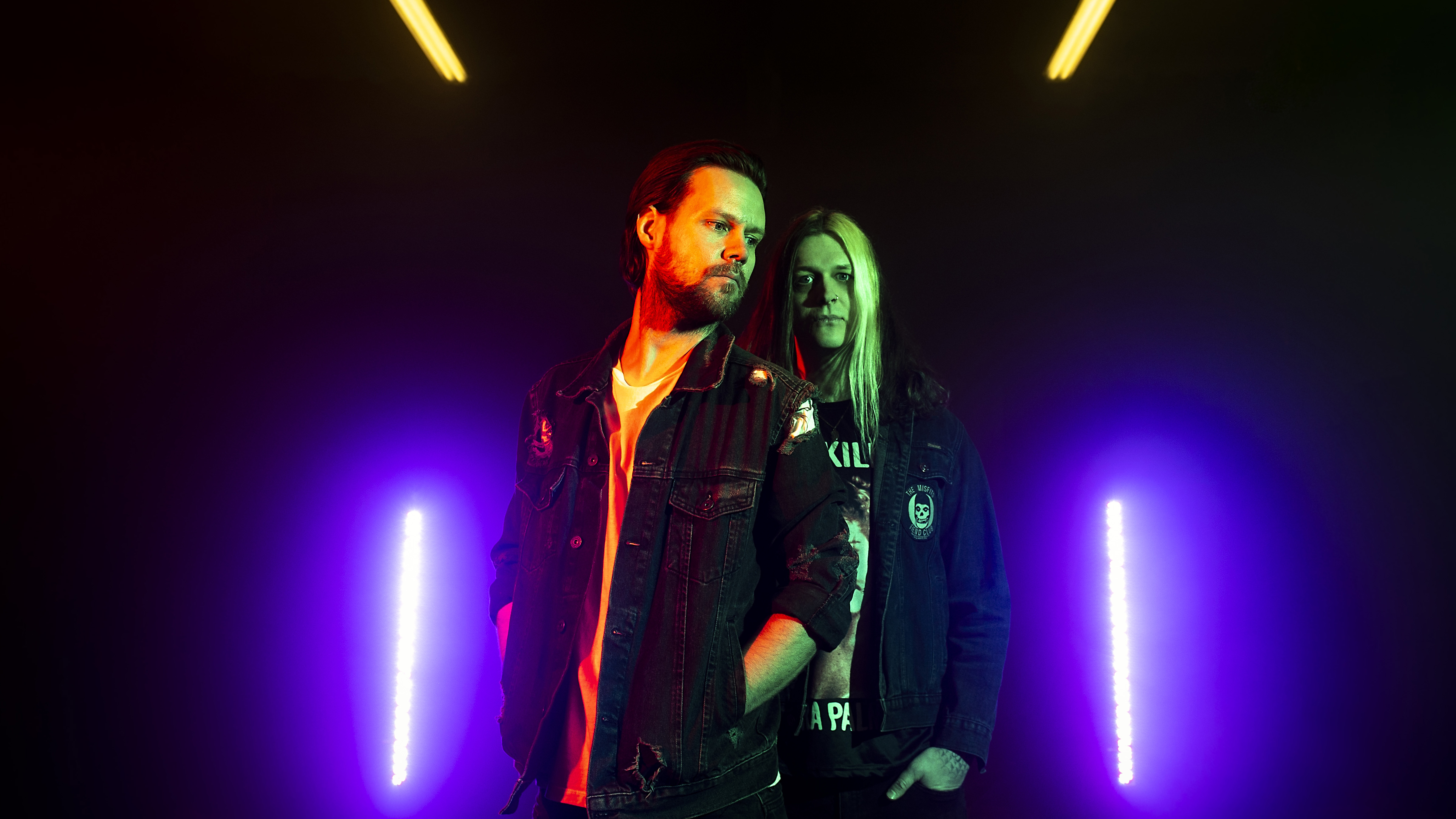
With last year's album Fuse, Peterborough duo LeBrock firmly established themselves amongst the most gifted songwriters in the thriving synthwave genre and its retrowave offshoot, alongside the likes of The Midnight, FM-84, Le Cassette, Gunship and Timecop1983.
After LeBrock released well-received EPs in 2016 and 2018, 2021's Fuse also highlighted the added potential of the distinctly rock-influenced slant the duo of powerhouse vocalist Shaun Phillips and guitarist/producer Michael Meadows offer. It's a stunningly-crafted album; filled with anthemic hooks, soaring vocals and guitar solos, with a meticulous 21st century filter on '80s nostalgia that should see big things ahead for the two musicians.
We talked to Michael about the duo's journey so far, the balancing act of guitars and synths, his recording rig and what lies ahead for a band that can pull fans in from across genres.
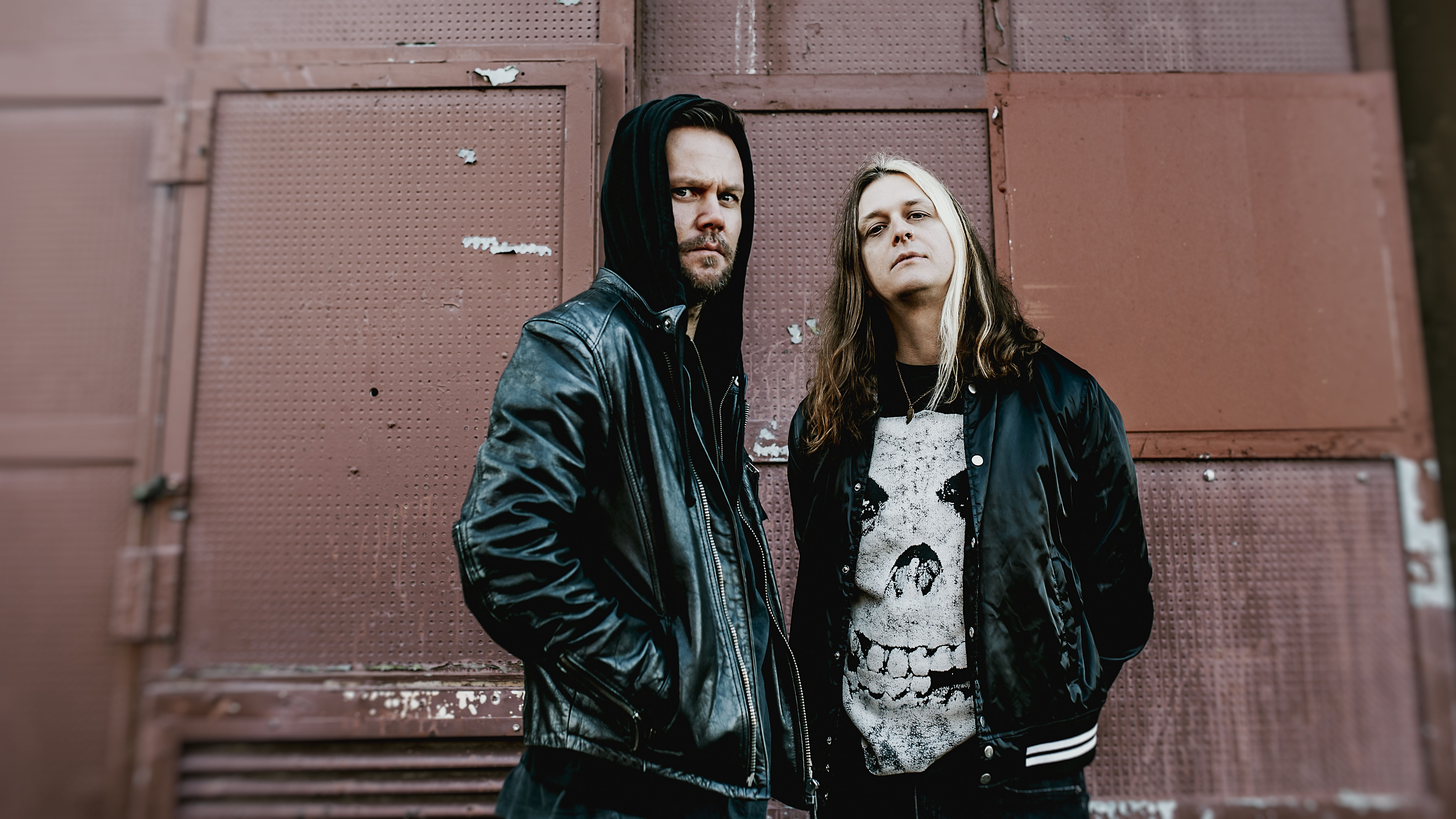
Were you in more traditional rock bands before LeBrock?
"Yes, growing up I was in my fair share of rock and indie bands , ranging from all out classic-style rock to more indie synth-pop and shoegaze acts. It definitely helped me learn different music styles and how to work with other creative people. I’d like to think there’s little elements of each that I manage to sneak mix into LeBrock.
What brought you and Shaun together?
"Shaun and I have known each other for years. He used to DJ and put on shows at some of the local venues in Peterborough and had been in a fair few bands himself.
Get the MusicRadar Newsletter
Want all the hottest music and gear news, reviews, deals, features and more, direct to your inbox? Sign up here.
"We’d discussed doing something together for a long time but it just never seemed to come to anything until Shaun sent me some tracks by Dance With The Dead (Shaun had previously been in a band with Tony, the guitarist) and it just blew me away. We decided to get together and try and write something in a similar vein but with our own twist, which would end up turning into the beginning of LeBrock."
Who were your guitar heroes growing up?
"I loved Slash for his style and just his 'messy' sounding way of playing, it was just a dirty gritty sound that I always loved. Steve Via for his technical ability and The Edge for his use of delay and sonics.
"I also have to shout out Noel Gallagher, not because I think he’s a particularly good guitarist, but as a 14 year old learning the guitar, I was obsessed with Oasis and it was their songs that taught me how to play.
"The simplicity of the music meant it wasn’t too much of a struggle to pick up and play the songs I liked. I feel if I had tried learning something more advanced, it would have been more likely that I’d throw in the towel and give up. So I’ll always owe that to Noel and Oasis!"
The Midnight were another act I loved from the beginning. They’re great at sculpting out that nostalgic 'yearning of youth' we can all relate to as we get older
"I remember hearing Fly For Your Life by Gunship and thinking, this sound is amazing! The pulsing bass and the sound design in particular really grabbed my attention. This was even before I knew what synthwave was, so I just thought it was a really cool song. I love the use of cinematic elements within their tracks, I really think it elevates the music.
"The Midnight were another act I loved from the beginning. They’re great at sculpting out that nostalgic 'yearning of youth' we can all relate to as we get older.
"Then, as I mentioned previously, Shaun introduced me to Dance With The Dead and that really peaked my interest. Their guitar work and production is really second to none!
Do you find there’s a lot of crossover to the scene from rock and metal fans? Why do you think that might be?
"Most definitely! We often have this conversation with people at our live shows and I think the main reason (aside from the rock influence in the sound) comes down to nostalgia. I think this scene has a lot of the 30-45 age group and they grew up with the '80s and late '90s rock groups which LeBrock and other artists channel into their music.
"I think for a lot of people, it’s the first time a 'new band' has brought a style of music they can related to and enjoy to the semi mainstream."
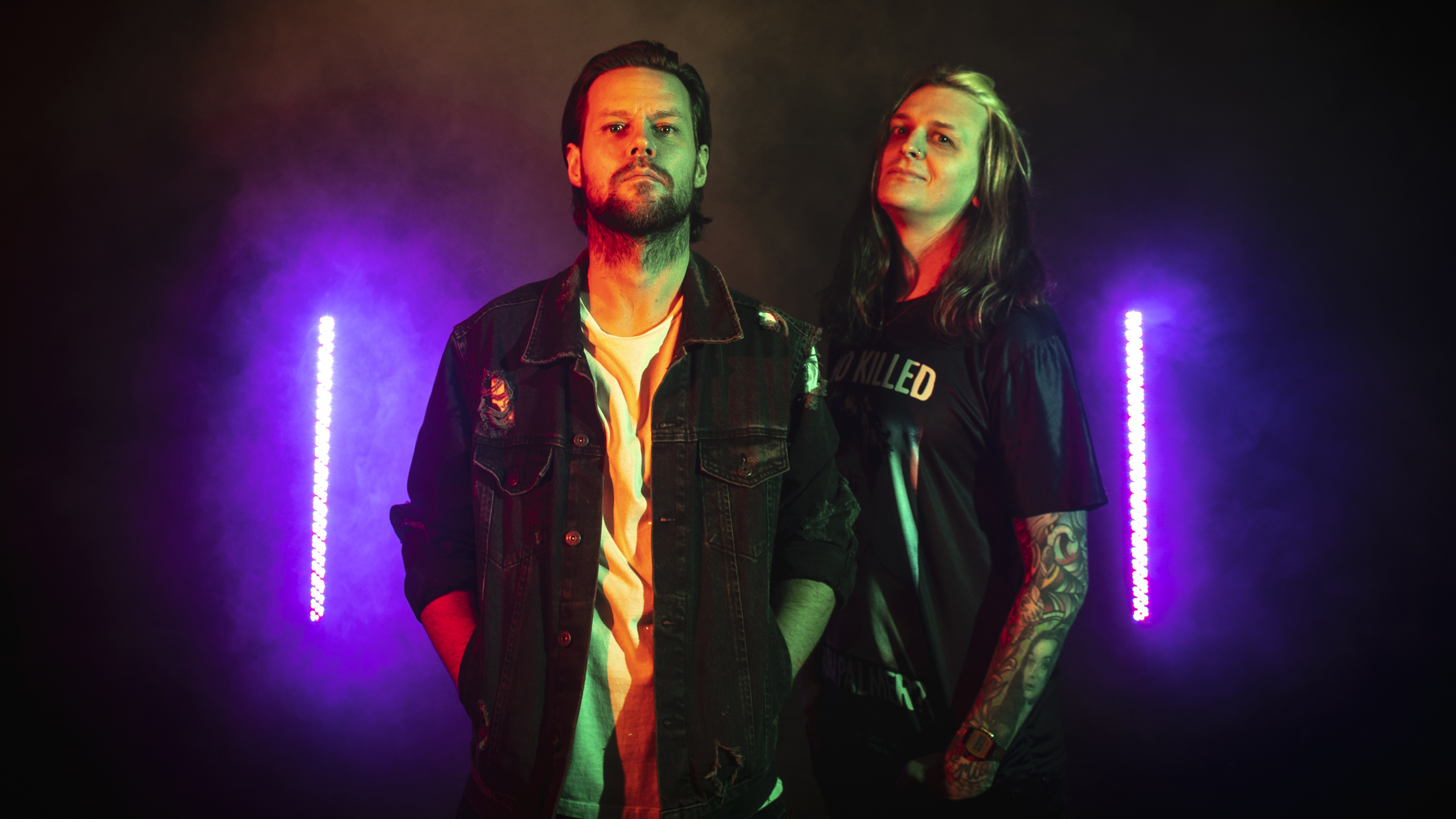
The main challenge for me was to try and keep the sound diverse enough. I didn’t just want to write a ton of '80s rock songs
Sonically and in terms of composition, Fuse sounds like something you really pushed yourselves on, what were the challenges for you?
"It was certainly a long old slog! It took nearly three years to finish. The main challenge for me was to try and keep the sound diverse enough. I didn’t just want to write a ton of '80s rock songs', I really wanted to fuse (no pun intended) some more modern-sounding pop and rock elements into them too.
"Tracks like Synthetic and Rush, for example, are way more synthpop-driven than say, some of our previous work.
"Also, a track like, Hollow I really think could stand up to some of the more 'relevant' rock releases you hear today. It was all about trying to find that balance of nostalgic, throwback sounds as well as something a bit more up to date."
As a kid I used to listen to the Rocky soundtracks nonstop
How do you tend to work with Shaun – do you send him pretty well-formed compositions musically or is he involved in arrangement early on?
"They’re usually pretty well formed early on. I’ll write and record the music first and try and get it to an as finished state as possible before sending it over to Shaun.
"Obviously the vocal can change everything, so there are times we’ll adapt the track to suit what Shaun’s doing vocal-wise. A good example is Interstellar. I had a completely different lead guitar part in the chorus when it was originally written, but it just didn’t sit right with m Shaun’s vocal melody, so we switched it up.
Cinematic is a word thrown around a lot but it really feels like your songs have that feel – what films and soundtracks have inspired you over the years?
"During the '90s and through to about 2012, I had an unhealthy obsession with soundtracks and film scores. As a kid I used to listen to the Rocky soundtracks nonstop. I don’t think I’ve met a soul who doesn’t get hyped if you put on Training Montage by Vince DiCola.
"Also scores like Crimson Tide and The Rock by Hans Zimmer, the way he would blend electronic music with orchestra was just mind-blowing to me at time. Harry Gregson-Williams was another composer I loved for the same reason.
"I actually did attempt to do some film music composition when I first started seriously doing music production, but I was way out of my depth, ha! It did help me learn how to blend more cinematic elements into LeBrock compositions though, so it wasn’t a compete waste of time!"
Wait until you’ve got something you know is gonna blow people away
Fuse feels so meticulously crafted in terms of consistent huge hooks alongside sonic details; you obviously put a lot of time into it. Would you describe yourselves as perfectionists?
"I think that’s a fair assumption to a point….I can still probably go through that album and find something that could be better in each track, but at the time they were as good as we thought they could be.
"There’s often a lot of back and forth between both Shaun and I about little tweaks we could make here and there, or if a song is actually good enough to be on an album or even released at all (there’s plenty of tracks that didn’t make Fuse). I always feel quality over quantity is the way forward and I’ve never been one for just rushing tracks out for the sake of having things out there. I really think putting sub par stuff out can be really detrimental to an artist.
"That’s actually one piece of advice I’d give to anyone writing music or starting out; wait until you’ve got something you know is gonna blow people away. It’s easy to get excited and want to show the world your work, but if it doesn’t stand up to what’s already out there or it’s below par, just hold off and keep at it until it’s that little bit better, it will make all the difference."
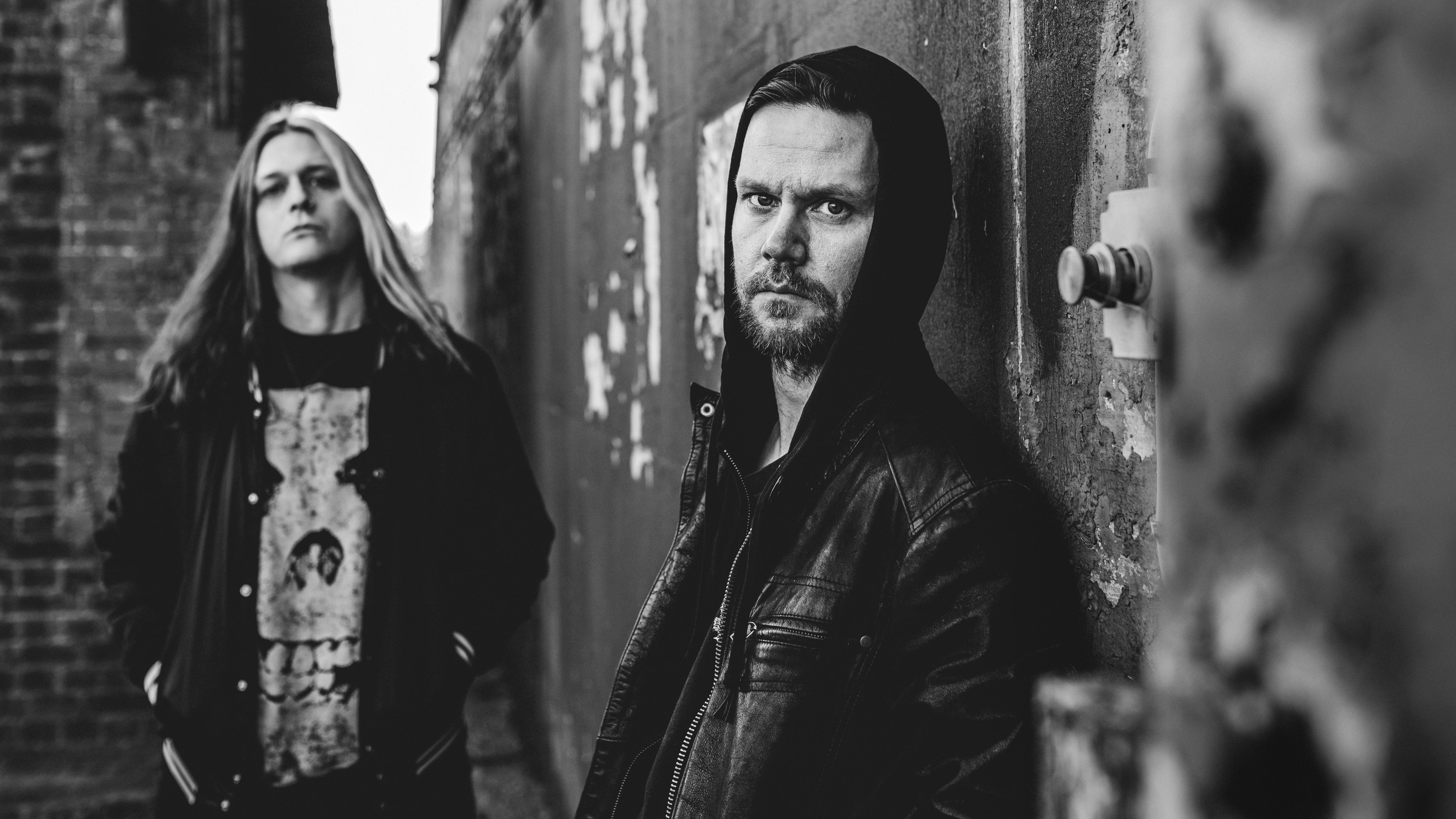
What were the greatest challenges for you in crafting this album? Did the mixing stage present its own set of challenges?
"Pandemic aside, It was really just finding that the right balance of songs for the album. As I said before, it was so important to me to hit the right level of nostalgia without being too cheesy or just turning the whole thing into a gimmick. That’s why i tried to blend in a few more modern sounding elements without losing the overall vibe of what LeBrock is all about.
"I don’t actually do the final mix myself, I’ll do a rough mix and send this to Justin Paul Hill, our mix engineer. He’s pretty much mixed all our stuff from the beginning and he’s been a great influence on helping craft the early dynamic sound of LeBrock.
"We’ve got a great working relationship so the mix stage, while it can sometimes take a few revisions before everyone’s happy, is alway a pretty chill experience!"
I’ve no shame in saying that I’m a complete preset whore
Did you approach synths and programming after playing guitar for a while? What was the learning curve like?
"Yeah, I’ve only really gotten into the production / synth side of things over the past eight or so years. I knew a very basic level of recording previously, but I’d always been interested in the more technical side of production and recording. As far as the synths go, I’m really no synth player, but I can get by with the bare minimum when it comes to recording and just tweak the composition elements inside Logic.
"I don’t use any hardware synths so it’s all in the box and I’ve no shame in saying that I’m a complete preset whore, I’m pretty useless when it comes to sound design. I’ll find a sound I like and make minor tweaks to it, that way I’m spending more time on the composition and arrangement."
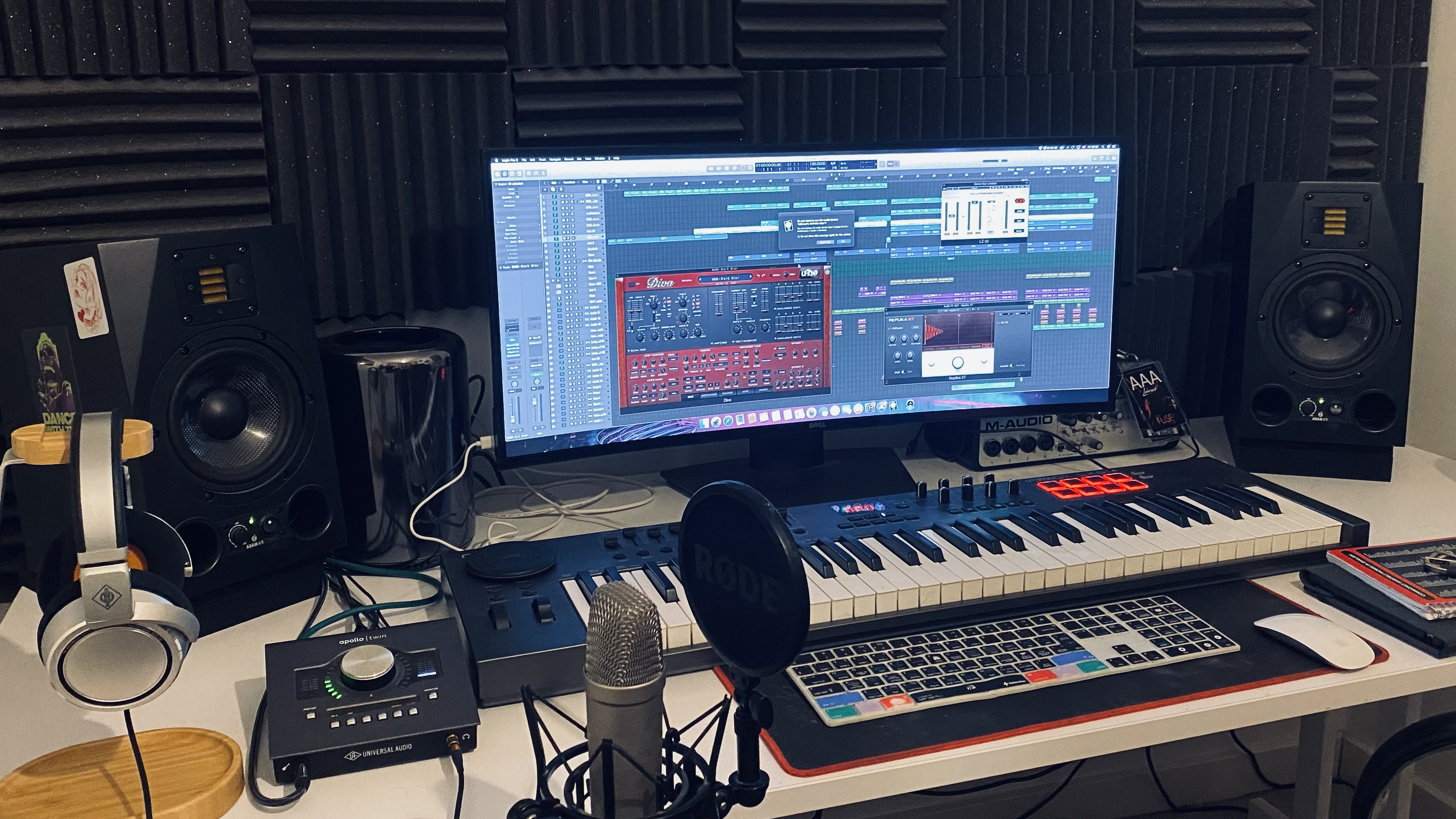
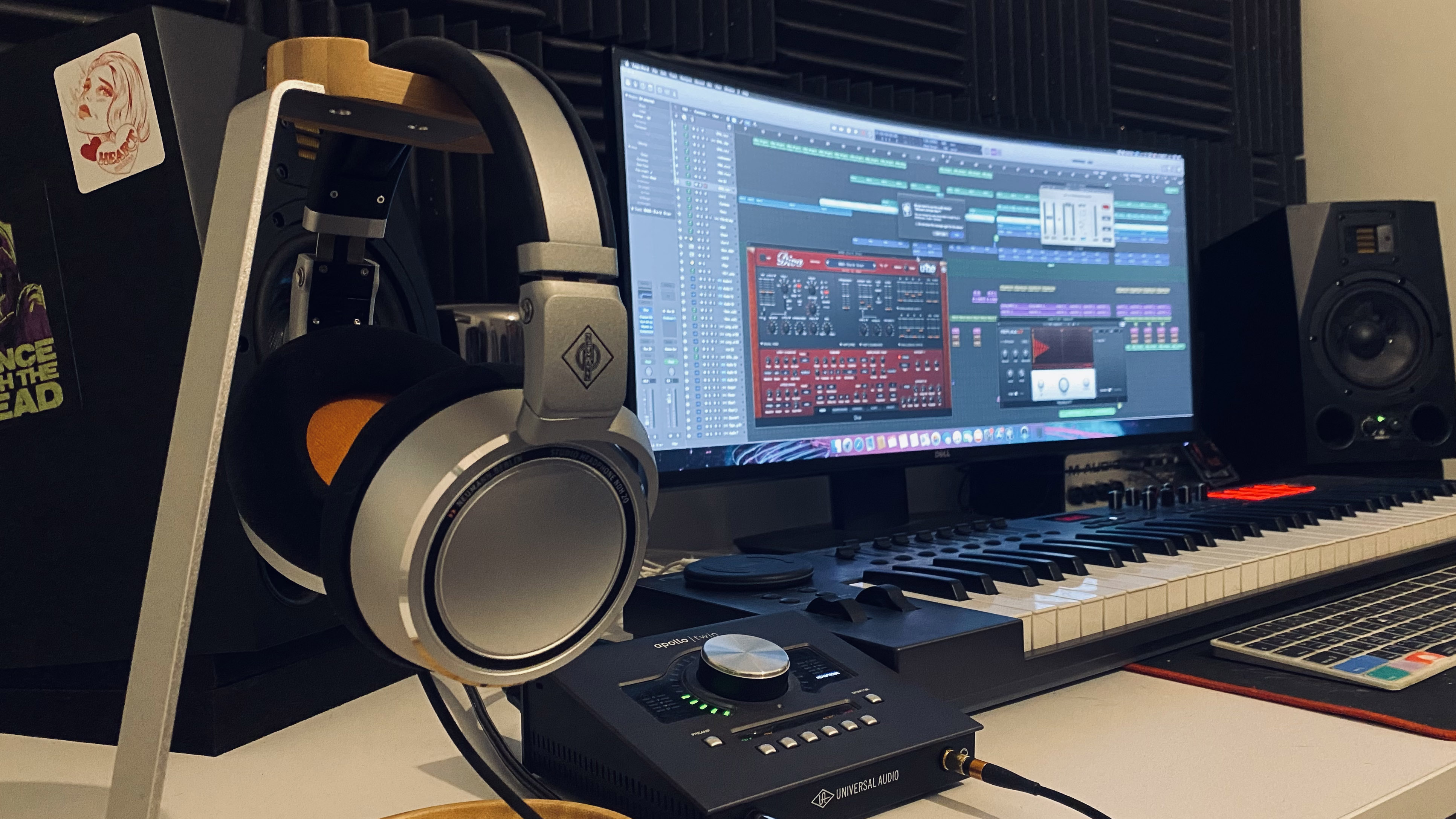
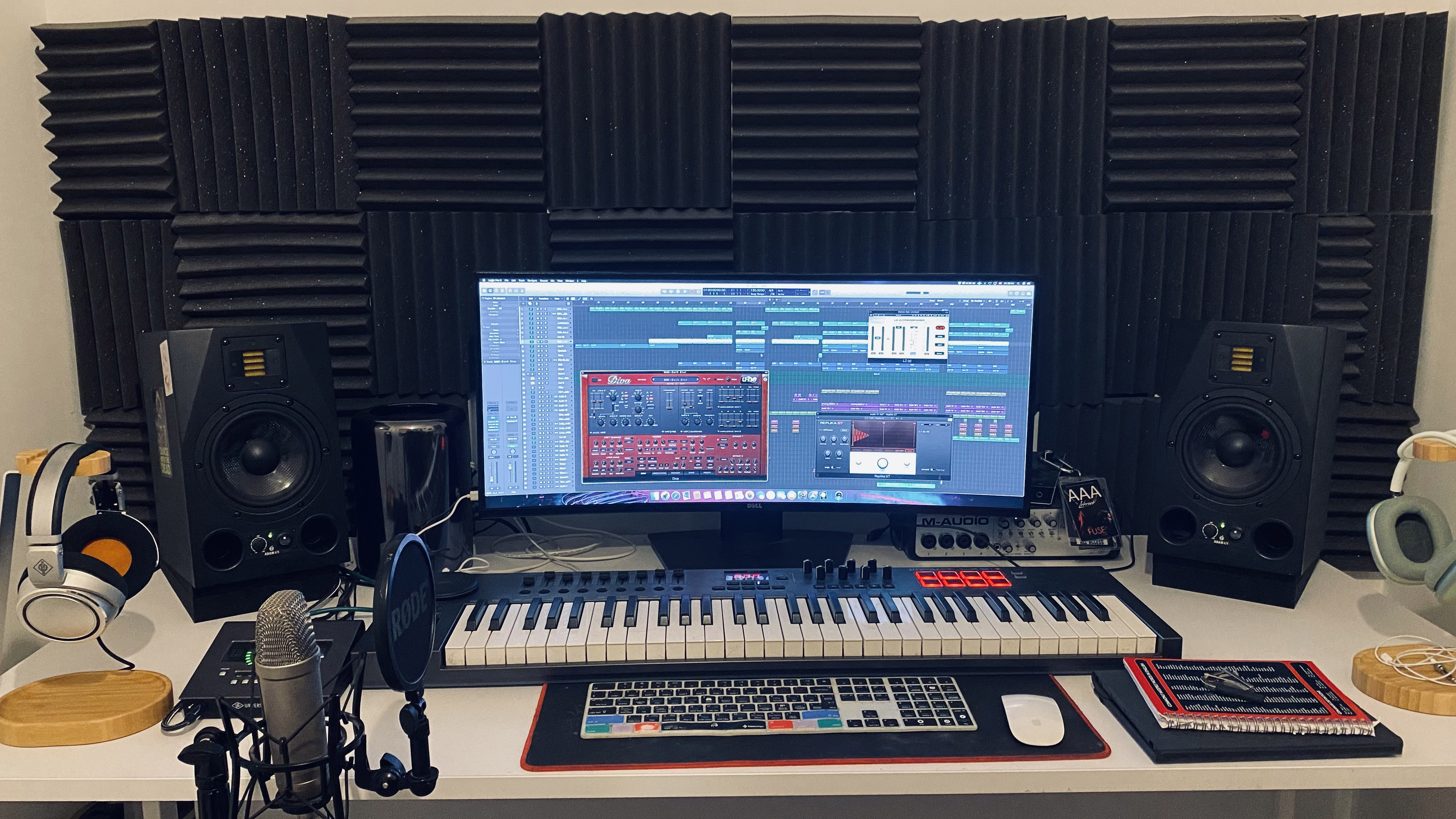
What are your favourite go-to synth and production plugins?
"Synth wise, definitely Diva from u-he, I love the sound of that synth, super analogue and there’s so many great sound packs out there for it. Alchemy, within Logic is also great and a super powerful piece of kit.
"On the production side I love [Native Instruments] Replika Xt. I use it on almost everything I want a delay on. It’s such a great tool and you can sculpt so many different soundscapes with it.
"The CLA range from waves is also brilliant. All great-sounding plugins and super easy to dial in a setting that will sound great right off the bat."
What’s your recording setup like on the synth and DAW side?
"I’m running a 'Trash Can' Mac Pro with Logic Pro X as the DAW and just a simple Apollo Twin interface for the recording and monitoring side of things. I have a Nektar impact 61 as my controller keyboard and some Adam A7Xs for studio monitoring.
"As far as synths go, it’s all in the box, so no hardware."
I’ve never been one for 'shredding', and I much prefer a great melody
Your guitar solos on this album are a real highlight in the songs. How do you tend to approach writing them and do you often find your initial melodic ideas for lead parts are the strongest?
"I have zero strategy when it comes to solos ha! I’m really not a great guitarist, so I’ll often do one section at a time and just set Logic on a loop and noodle until something useable comes out.
"I’ve never been one for 'shredding', and I much prefer a great melody, so I’ll always go for something that is simple but hopefully effective in that it still hits the spot!
The balance between your guitar riffs and the way they work in the bigger picture of the electronic sounds is another thing that struck me. Can it be tricky sometimes to make sure both elements are complementing each other?
"Absolutely. On many occasions I’ve found myself having to rethink how I’d initially planned a composition. Often the guitar won’t get added until later down the line and when I’ve come to add those elements, they just don’t seem to work. It can definitely be a challenge to rethink how these elements are going to fit together.
"Sometimes it's something as simple as a tone issue and a slight adjustment to the guitar sound or level will fix it. Other times I’ll need to rethink how I’m playing or what I’m playing and sometimes it plain just doesn’t fit at all and I’ll leave it out. Again, it’s all about balance and what fits the song, if it’s not needed, don’t put it in."
I’ll often drench a clean guitar in reverb and delay and slam it with a compressor or transient designer so it almost sounds more like a pad than a guitar
Do you have any tips for any other guitarists out there who want to explore this style of music?
"It really depends on what sub genre of synth/retrowave you’re going for, but I would say just concentrate on serving the song. Don’t just go balls to the wall with the guitar and shred all over the song. Understand what’s needed sonically and then base your guitar parts around that.
"I’ll often drench a clean guitar in reverb and delay and slam it with a compressor or transient designer so it almost sounds more like a pad than a guitar. It’s great to think outside the box as well, there’s so much unconventional stuff you can do with guitars now, especially with all the great plugins that are around."
The Strat seems to fit into a synth-heavy style of music really well, have you always been a fan of Strats or did you find yourself gravitating to it later for this style?
"When I was younger I always wanted a Les Paul and Gibson guitars were definitely my favourite. I actually thought fenders were a bit 'meh' and boring, but the older I got the more I fell in love with the tone and when I first saw the relic and Road Worn Strats I just had to get one! I haven’t used anything else for the past 12 years.
What model do you play?
"It’s a '60s Road Worn Olympic White Strat, everything on it is stock."
I literally don’t even own an amp anymore
How would you describe your guitar tone and what are the essential effects in your signal chain?
"As far as lead tone, it’s a pretty standard smooth '80s lead sound. All my guitar sounds are through NI’s Guitar Rig and I don’t use any amps or hardware for recording guitars other than the guitar itself and the interface. I literally don’t even own an amp anymore.
"As far as signal chain goes, It’s usually a gate to get rid of any low noise or hiss, into a 'screamer, then into some sort of Marshall JCM head and cab emulator, followed by an eq and finished off with a delay.
"For rhythm stuff I’ll normally have a pretty similar chain just get rid of the delay and adjust the eq , gain and drive to taste. There’s really nothing special going on for the guitar side of things! I might go a bit crazy on the channel strip if I want something a bit different but the main signal chain is fairly run of the mill."
What guitar plugins or rig do you tend to use for recording and how does that compare to what you use live?
"As above really, all in the box stuff, so NI’s Guitar Rig 5, CLA guitar and Replika for my delays. That’s pretty much it for recording.
"As for live shows, I used to use Rig Kontrol and literally carry my sounds straight over from Guitar Rig to the stage, but since NI stopped supporting that, I moved over to a Line 6 Helix and have been using that ever since. I certainly don’t miss dragging amps and cabs around on tour anymore and it’s more than capable of pulling off a huge sound for the live stage!
The scene seems really supportive and it’s great for new listeners as they can go down this rabbit hole of new music to discover. But artists still need help to stand out from the crowd, so how important have resources like NewRetroWave been like to Lebrock? Are there any other sites you'd recommend?
"NewRetroWave are literally the reason we are where we are today. They featured Call Me back in 2016 and things just took off from there! They were and still are such an integral part of the synth/retrowave scene.
"Our record label FiXT have also been a huge help, getting a couple of our tracks on official Spotify playlists which has really helped boost the bands profile! I think in the digital streaming age, getting yourself on a big Spotify playlist or a feature on a substantial YouTube Channel is the way to go.
"As for other sites etc, there are plenty of playlists available to check out on Spotify if people want to go down the rabbit hole! In fact Shaun has one called Synthrave that has about 44hours of music on it! That’s a good place to start. Our label, FiXT have a bunch of Synthwave and retro artists on their roster people can listen to and YouTube channels like The Prime Thanatos are also worth a punt."
We try to make the show as 'big' as possible for a two-piece
You were able to tour the UK late last year, how did that go?
"It was great! We were unsure how it would go being so soon after Covid restrictions had been lifted, everywhere had just opened up and we were really not sure if people would feel ready to come out to shows again. Initially, tickets weren’t moving as fast as we’d maybe expected, but this picked up massively the closer it came to show time and in the end the turn out was incredible.
"It was certainly strange being back on stage again, but the atmosphere and reaction from the fans made it all worthwhile."
It looks like you guys bring a lot of energy to your live shows, but what are the challenges of playing live as a duo?
"Shaun definitely carries those live shows, he’s such a great frontman and is always capable of wrapping the crowd around his finger.
"We try to make the show as 'big' as possible for a two-piece and use our own onstage lighting rig that we’ll fit around the stage. We find it just adds that extra something to make things feel a little more special.
"There are challenges being just a two-piece, especially on the tech side, when we first started touring we’d have to oversee all the onstage equipment at the same time as performing and there was more than one occasion that technical issues would interrupt shows while we’d frantically look to find the fix.
"Luckily we had extra help on this last tour and had a small crew to take care of all the on/off stage tech, so that was a massive weight off our shoulders."
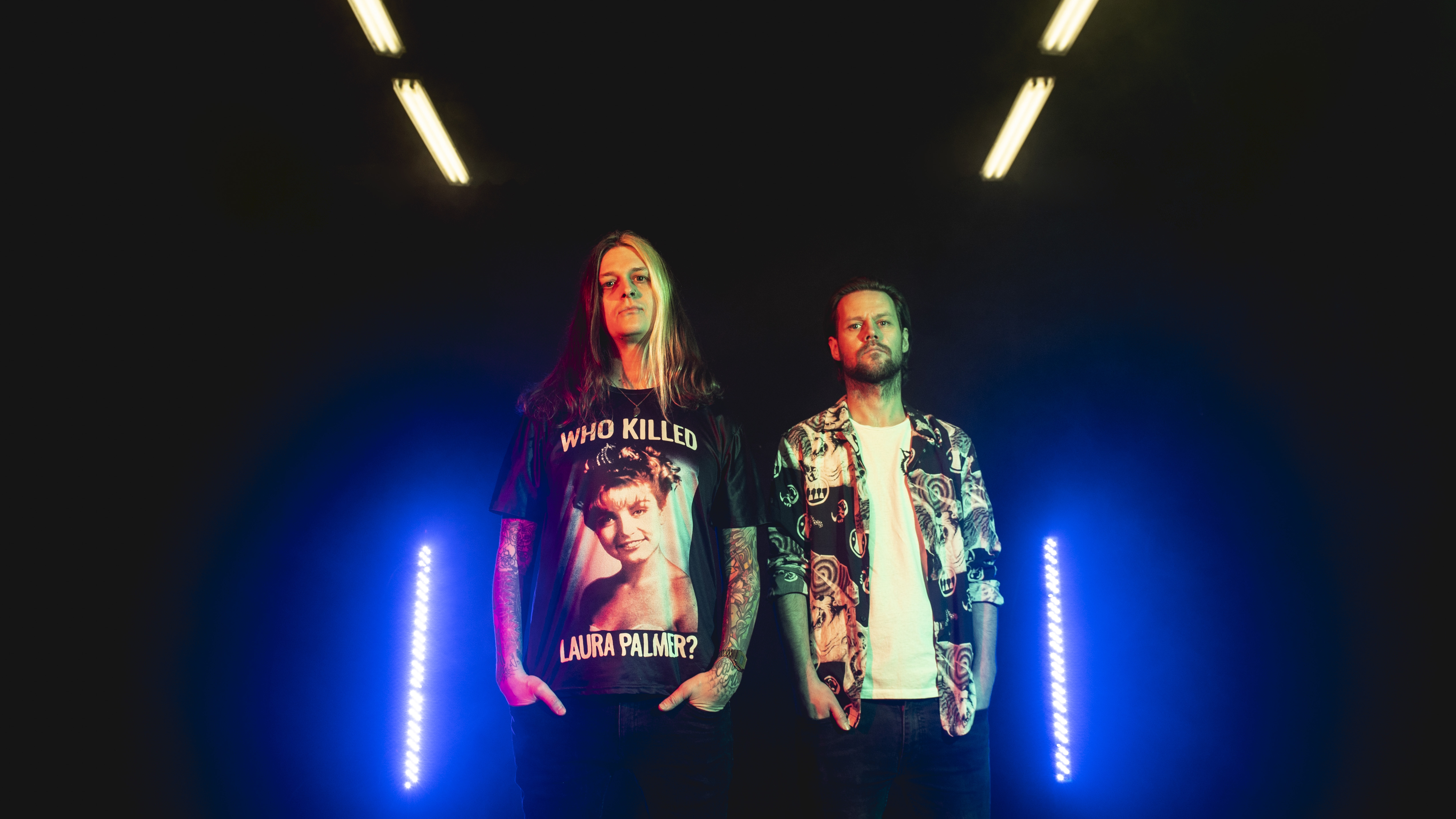
We have been thinking about adding more live elements like a drummer, full-time keyboard player and another guitarist
You’re in a position with your sound where there’s so much potential; you could be part of a synthwave lineup or with rock bands, even reaching out to older classic rock fans. Is this crossover something you’d like to explore, perhaps even consider an expanded LeBrock band lineup depending on the circumstances?
"It’s certainly something that we’ve considered! The classic rock label Frontiers actually tried to sign us a few years back but for numerous reason we ended up turning them down.
"We would definitely be able to fit into a lineup consisting of those sorts of artists and we have been thinking about adding more live elements like a drummer, full-time keyboard player and another guitarist. On our last tour, Thomas McRocklin joined us on stage for a shred session during Call Me and it really did add that extra stage presence and heft in the sound."
Synthwave and retrowave has a really strong online presence with an international following, but I’m assuming plenty of the biggest talents of the scene – including yourselves – aren’t doing this full time yet. What’s the best way for fans to support you and the best place they can buy your music?
"There’s no single best place to buy our stuff, but the best way to support us is to keep sharing our music! Show us to your friends, families, work colleagues. Put us on your Spotify/Apple Music etc playlists, follow us on socials etc. The more people we can introduce to our music the better and to me that’s the best way of supporting us as an artist."
Lastly, what are your hopes for LeBrock in 2022 and beyond?
"We really want to try and get some more music out there for everyone, so our main focus will be working on new tracks throughout 2022 and trying to develop our sound and keep things fresh.
"We’d also maybe like to mix things up with the live shows, maybe throw some more elements into the mix with a drummer / full-on synth player. We’ve actually got a show coming up at the Loco Klub in Bristol on 30th April alongside some other cool artists from the scene, so well worth checking out if you’re a fan of this kind of stuff, or just fancy a great night of music!"
Fuse is out now via Fixt. Follow LeBrock on Instagram, YouTube, Facebook and Bandcamp. LeBrock play Loco Klub in Bristol with Dan Terminus, Deadlife and more on 30 April.

Rob is the Reviews Editor for GuitarWorld.com and MusicRadar guitars, so spends most of his waking hours (and beyond) thinking about and trying the latest gear while making sure our reviews team is giving you thorough and honest tests of it. He's worked for guitar mags and sites as a writer and editor for nearly 20 years but still winces at the thought of restringing anything with a Floyd Rose.
“They didn’t like Prince’s bikini underwear”: Prince’s support sets for the The Rolling Stones in 1981 are remembered as disastrous, but guitarist Dez Dickerson says that the the crowd reaction wasn’t as bad as people think
“We are so unencumbered and unbothered by these externally imposed rules or other people’s ideas for what music should be”: Blood Incantation on the making of Absolute Elsewhere and how “Data from Star Trek” saved the album – and the studio
